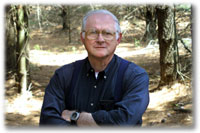In
the 1940s and 1950s, just about every farmer in our western Waushara County neighborhood
had a pickle patch. Some were as small
as a quarter acre; others were as large as an acre or more. You
could tell the size of farm family by noting the size of their pickle patch, as
picking pickles was an entire family project, including all of the kids.
Our
city cousins wished to correct our language when they visited the farm and we
told them about our pickle patch. They tried
to show their superior knowledge as they said, “These are not pickle
patches. They are cucumber patches. A cucumber does not become a pickle until it
is processed.”
We continued to call them pickle
patches. From mid-July until early
September, if the rains came and warm weather continued, we picked cucumbers
two or three times a week. We picked
them in five-gallon buckets and when a bucket was filled, we dumped pickles
into a gunny sack. In the evening, after
the milking was done and the cows let out to pasture, we loaded the sacks of
pickles into the back of our old 1936 Plymouth and we were off to the pickle
factory in Wild Rose. The H. J. Heinz
pickle factory, more correctly called a cucumber salting station, was located
across the railroad sidetrack from the E. L. Knoke sawmill.
Arriving at the pickle factory, we dumped
our sacks of pickles into a big green machine that sorted our pickles into five
different sizes. Number ones were the
little ones, sometimes called gherkins, and number fives were the big, wrist-size
lunkers. Payment was based on size. Number ones paid the most money. Number fives the least. We waited until the sorter finished, and each
size weighed. After waiting few more
minutes, we received a check for our pickles.
The pickle patch provided much needed money for our family.
THE
OLD TIMER SAYS; A check in hand at day’s end helped us forget a sore back from
several hours of pickle picking.
WHERE TO BUY MY BOOKS
See my book, IN A PICKLE,
for information about pickle growing. Buy
it at your local bookstore,
or buy online from the Wisconsin Historical Society bookstore, https://shop.wisconsinhistory.org/books, bookshop.org, or
purchase from the Friends of the Patterson Memorial Library in Wild Rose—a
fundraiser for them. Phone: 920-622-3835 for prices and ordering, or contact
the librarian: barnard@wildroselibrary.
Patterson Memorial Library
500 Division Street
Wild Rose, WI 54984.
www.wildroselibrary.org
If you live in the western part of the state,
stop at Ruth’s home town, Westby, visit Dregne’s. and look at their great selection of my books.
Order a book from them by calling 1-877-634-4414. They will be happy to help
you. If you live in northcentral
Wisconsin, stop at the Janke bookstore in Wausau (phone 715-845-9648). They have a large selection of my books.


No comments:
Post a Comment